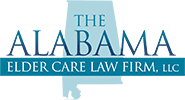

What is an advance directive? It’s a legal form that dictates your wishes when it comes to medical treatments. It allows you to state exactly what you want for care if you’re hospitalized or are unable to communicate your wishes.
An advance directive is often paired with a power of attorney to provide a person you designate with the legal right to act on your behalf if you become unable to speak for yourself. Your proxy or agent understands what you wish to happen in different scenarios and makes the best decisions possible to follow your wishes.
Two Main Types of Powers of Attorney
Medical matters are protected by advance directives. An advance directive doesn’t allow someone you trust to speak for you. That’s where powers of attorney come in. There are two main types. One covers your financial matters and one covers your medical wishes. To go along with them, there’s a financial power of attorney and medical power of attorney.
With a financial POA, the person is authorized to access your bank accounts and other financial products in order to pay bills, do your taxes, and sign up for products that you would want. A financial POA might make decisions regarding your homeowner’s insurance in hopes of getting you the coverage you’d want at the lowest rate.
A medical POA makes decisions related to your health care. If you had a stroke and couldn’t speak, your agent would decide if you would want a feeding tube or breathing tube based on the information you’ve provided. If you were in an accident and left-brain dead, your agent would make the decision to turn off life support and donate your organs, following your wishes in the process.
What Should an Advance Directive Include?
For a medical advance directive, it should cover your wishes when it comes to life-sustaining treatments, such as a Do Not Resuscitate (DNR) order. You answer whether you’d want IV foods and fluids. It should go over organ and tissue donations, if you have a donor card or agreement with any hospital or agency, and if you want your body donated to science.
If you have specific religious beliefs that require certain treatments to be avoided, that needs to be listed in an advance directive. For example, a Jehovah’s Witness may not be allowed to receive a blood transfusion. This should be listed in an advance directive.
Every family needs to plan for the future. If something happens, who will look after your parents’ financial and medical matters? Do you know how they feel about life support, breathing tubes, feeding tubes, and end-of-life care?
All adults should discuss advance directives and POAs with a qualified elder care law attorney and involve their close family members in those discussions. Have an attorney draw up the forms and witness your signatures. This is the only way to prevent a doctor or court from making these important decisions on your mom or dad’s behalf.
If you or a loved need assistance with Elder Care in Pell City, AL contact Nolan Elder Law & Estate Planning today. (205) 390-0101

One Response
[…] are specific to your state. The Alabama Elder Care Law Firm states, “All adults should discuss advance directives and POAs with a qualified elder care law attorney and involve their close family members in those […]
Comments are closed.